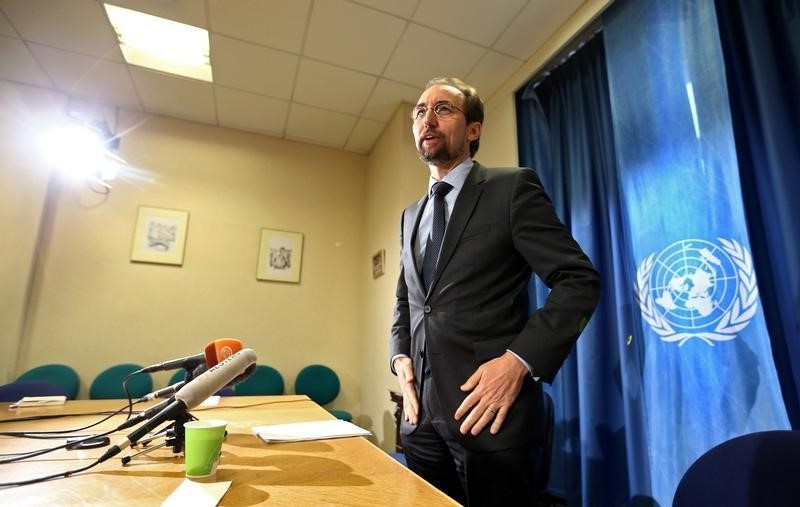By Tom Miles
GENEVA (Reuters) - South Sudan is suffering a rise in hate speech and incitement to violence against certain ethnic groups which could result in mass atrocities if the government does not act, the U.N. High Commissioner for Human Rights said on Tuesday.
Animosity between South Sudan's Dinka ethnic group and the people of its southwestern Equatoria region surged earlier this month when buses on roads south of the capital Juba were attacked as they passed through Equatoria region.
The government said 21 civilians were killed in one ambush on October 8, but rumours that as many as 200 Dinka had been killed circulated on social media, followed by calls for revenge.
Letters threatening violence and "elimination" of Equatorians in the north-western region of Aweil and an attack on an Equatorian humanitarian worker in Aweil town prompted the evacuation of nearly 100 humanitarian staff from the area, the statement from Zeid Ra'ad al Hussein said.
"Hateful ethnic rhetoric in South Sudan ... can have devastating consequences for entire communities, quickly spiralling into a cycle of revenge attacks," Zeid said in the statement.
He urged President Salva Kiir, himself a Dinka, to condemn the incitement to violence and to take urgent measures to defuse the tensions. He also expressed concern over a statement by Kiir on Oct. 19 that he would personally lead military operations against the armed groups responsible for the killings in the Equatoria region.
The Dinka are the biggest single ethnic group in South Sudan, but do not make up a majority of the population of 11 million people in the country which is a patchwork of dozens of tribes.
Dinkas have long dominated politics and have long been accused by other groups of monopolizing top posts. Equatoria is a region where mostly several smaller ethnic groups live.
Some state officials had reportedly joined in the hate speech, the statement from Zeid said.
But Deputy Information Minister Akol Paul condemned the rise in ethnic tensions, saying the government position was one of unity.
"I totally agreed that this conflict has caused battiness and hatred among our people, but we should not be taken hostage by battiness and hatred," he said.
"Our position as government is that, our people whether from Equatoria or Bahr el Ghazal or from Upper Nile will always be together in days of difficulties because they all voted for the independence of this country."

Rivalry between Kiir and his former vice president Riek Machar, an ethnic Nuer, led to South Sudan's first war in December 2013 when Kiir sacked Machar. Machar fled to Sudan from where he has urged his forces to re-organise for armed resistance to Kiir's government.